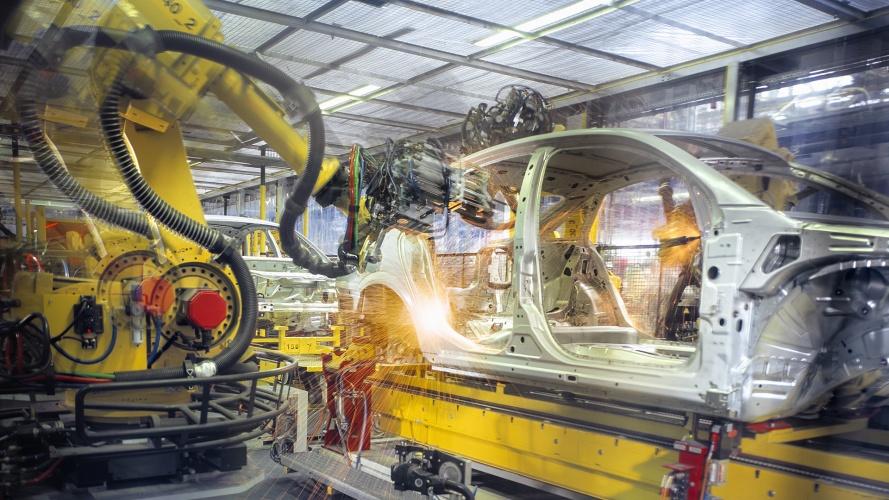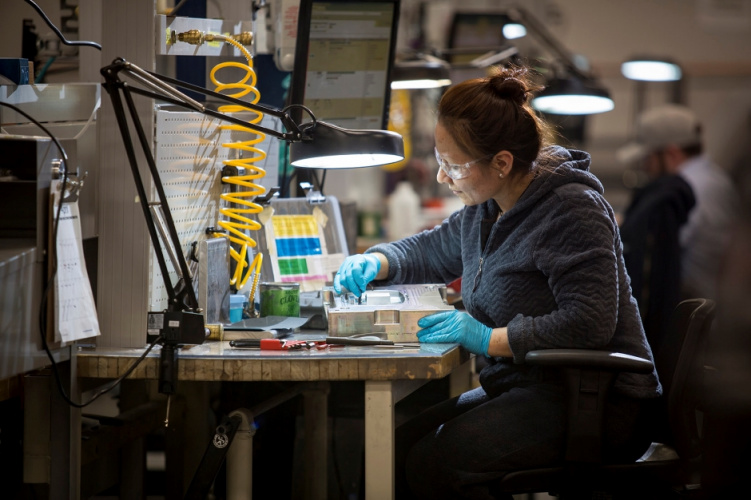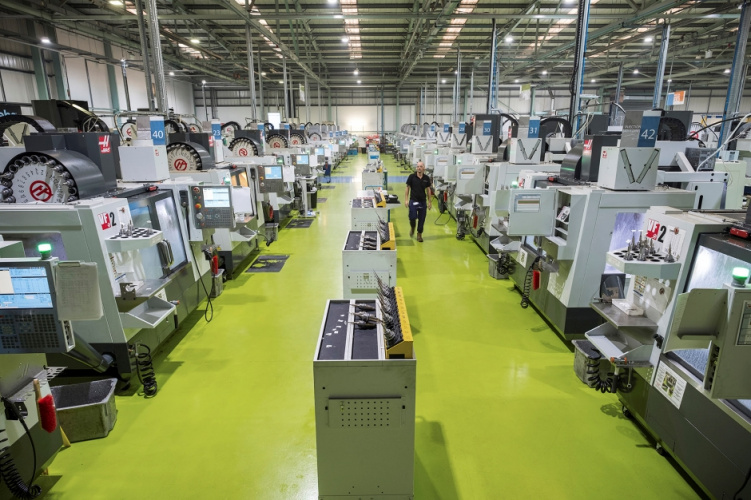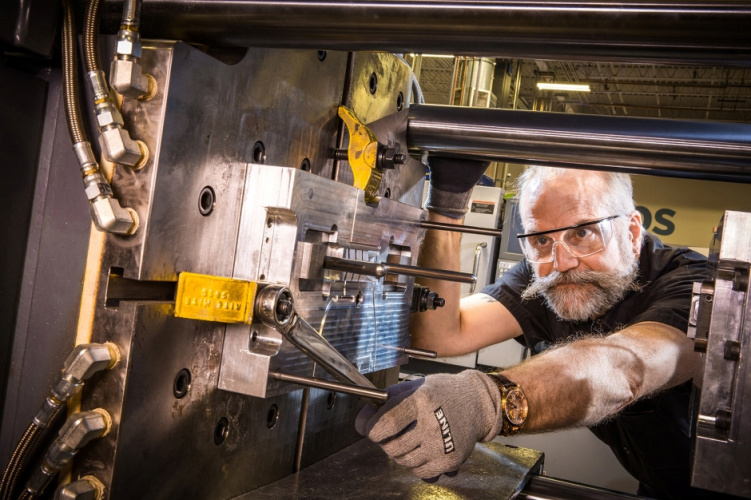The automotive industry is facing a period of unprecedented change.
Whether it be the digital revolution sweeping through every corner of industry, the environmental challenges which are becoming ever-more urgent or the emergence of new rivals from outside of the sector, there has never been a time like the one we currently find ourselves in.

That’s why Protolabs - as the world’s fastest digital manufacturer of custom prototypes and low-volume production parts - embarked on The Innovation Race, one of the most comprehensive pieces of research recently completed on the European automotive industry.
Through a survey of 300 senior executives from the likes of BMW, Daimler, JLR, Magneti Marelli, Volkswagen and Williams F1, we explored the trends affecting the sector in the short and long-term, evaluating the actions it is taking in response.

Key findings include:
- 52% of respondents believe an iconic car manufacturer will go out of business in the next three years
- 52% also believe a new entrant will disrupt the market with a revolutionary new kind of vehicle in the next three years.
- 69% say they have never been under as much pressure to innovate as they are today
- 71% say they need to adopt Industry 4.0 or digital processes to survive
- 56% expect consumers to increasingly share their cars rather than buy them
Our research makes it clear that the industry across Europe is at a turning point, with customer demands and expectation changing almost as rapidly as technology advances.
Car-sharing, ride-hailing and rental and subscription alternatives to ownership are all seen as areas of huge disruption. Alongside this, 48% of respondents believe the threat of new competitors emerging from Asia or America could lead to the wholesale loss of Europe’s business.
As many as 69% of respondents say environmental regulation will become significantly stricter, whilst 65% believe green issues will see consumers turn against the traditional automotive industry.
But despite this, there is a mood of real optimism in large parts of the sector.
In Italy, 88% of respondents say they are well-placed to meet changing consumer demand – a figure reflected by their colleagues in France (87%). The Italians are also the most confident about their ability to compete with new rivals (86%) whilst optimism about growth prospects is highest in France (80%).

The UK’s focus appears to be on leading the race towards electrification and new powertrain solutions. Car makers and automotive suppliers here are investing more in developing new technologies than their competitors in Europe, with nearly half of firms (46%) committing significant resources to exploring new possibilities in electric and hybrid vehicles, compared to just 34% in their nearest rivals Germany.
The UK also appears to be leading the European automotive sector in pioneering new approaches to fuel efficiency (34%) and recognising the potential in developing autonomous parts and vehicles.
The research highlights the strides that industry is taking to combat climate change and to meet the sector’s commitment to reduce CO2 emissions to 95g/km by 2020/21, by 15% in 2025 and by 37.5% in 2030.
But behind some of this optimism it is possible to detect seeds of complacency which could create significant challenges in the race to innovate.
Whilst at first glance it may appear healthy that seven in 10 (69%) say that their businesses can withstand any change in the global automotive industry, it needs to be balanced against the fact that over half say that their peers are largely complacent about market disruption.
The ability to innovate at speed is also at risk of being compromised when 48% of respondents in the European automotive sector saying that talent is harder to come by than it was 10 or 20 years ago and a relatively modest 67% are confident of securing the talent they need.

The Innovation Race has delivered some clear messages that all of us operating within Europe’s automotive sector need to be aware of:
- The old certainties are gone – it’s time to embrace a new reality
- Avoid the sunk-cost fallacy
Consumers increasingly want electric and driverless cars and their preference may well be to share rather than buy vehicles in the future. Car makers should respond with enthusiasm to the opportunities ahead, embrace new technologies and develop new vehicles/business models at pace.
Manufacturers cannot allow the fact that they have invested billions in existing technology to deter them from now investing in unfamiliar avenues. Hesitation opens the door to new entrants and there is no such thing as a disruption-proof company.
- The industry is experiencing a scarcity of talent
Success relies on creative minds that can anticipate and satisfy changing customer demand. Part of the long-term solution relies on getting an innovation-friendly culture in place. More immediately, brands may look to new partners and suppliers to provide the skills they need.
- Speed is everything in the innovation race
As fast as the pace of change is today, it will only get faster still. Car makers urgently need to understand how they can speed up their innovation activity - whether failing fast, shifting direction or seizing the brightest new opportunities.
It is clear to see that there is a real willingness to innovate across the European automotive sector. However, the pace of change means that even the biggest names are struggling to keep up or are confident that they have the answers.
By outsourcing non-core competences or tapping into external expertise they can gain the competitive advantage that is crucial in the increasingly digital world that manufacturing finds itself in.
Bjoern Klaas is vice president and managing director of Protolabs Europe




Glasgow trial explores AR cues for autonomous road safety
They've ploughed into a few vulnerable road users in the past. Making that less likely will make it spectacularly easy to stop the traffic for...